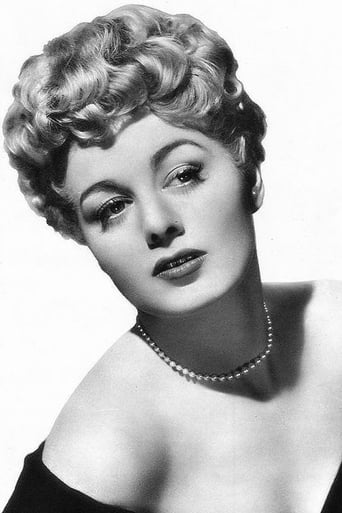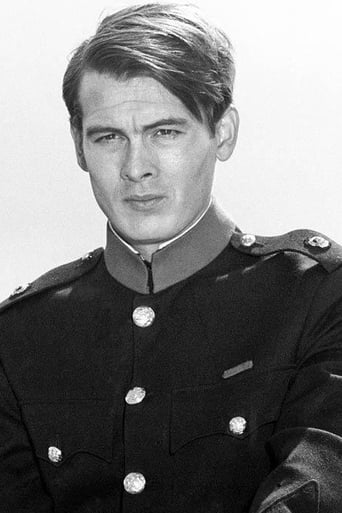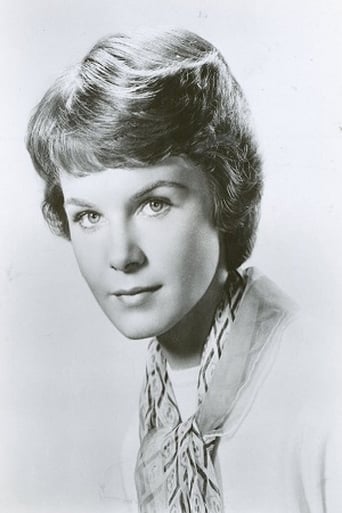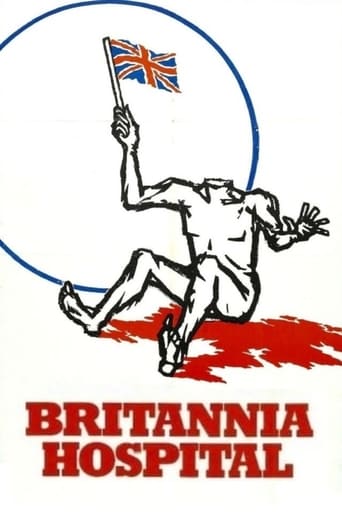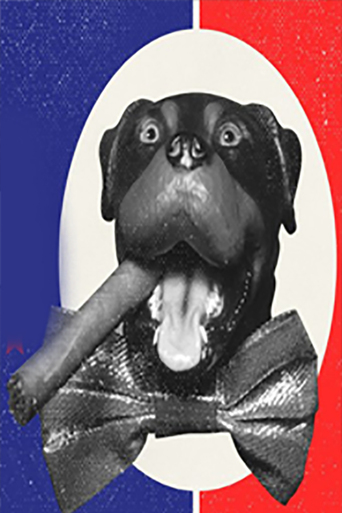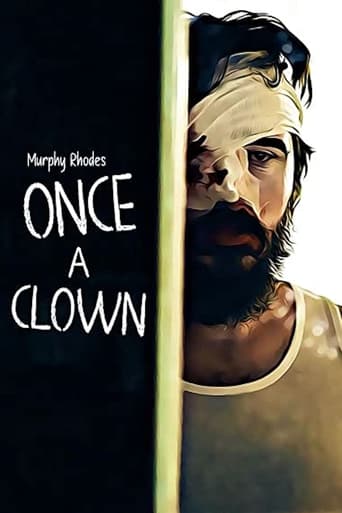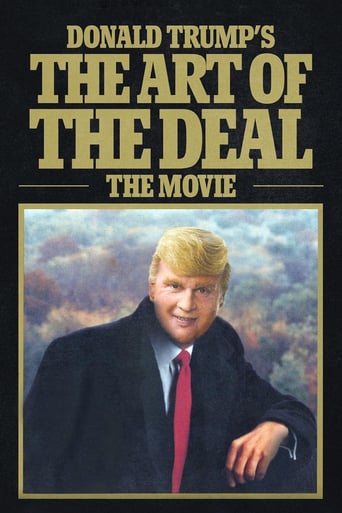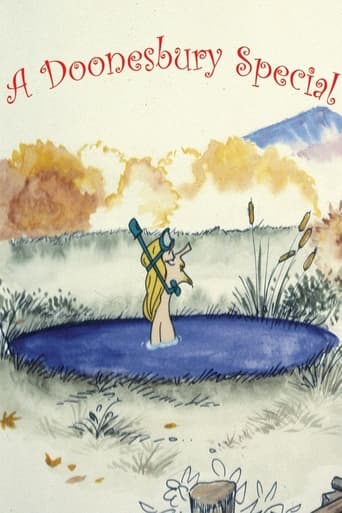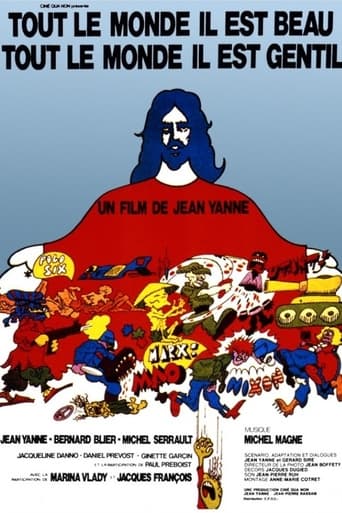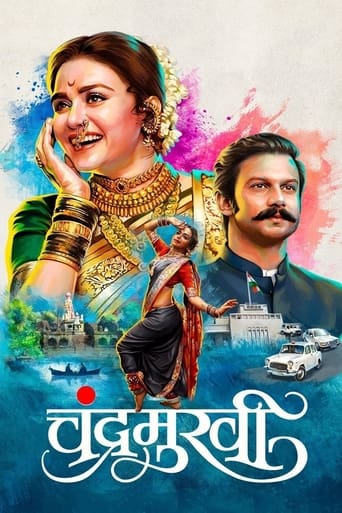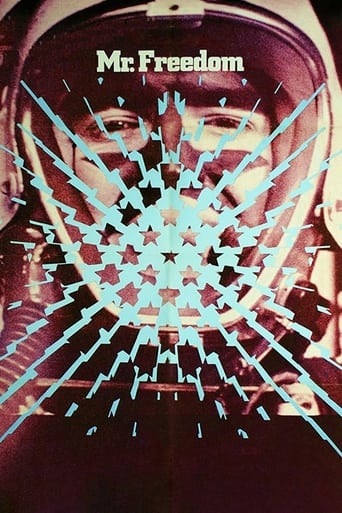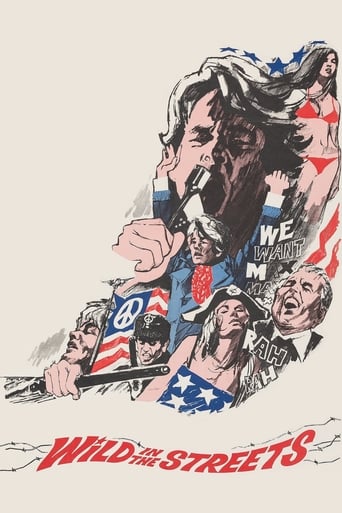
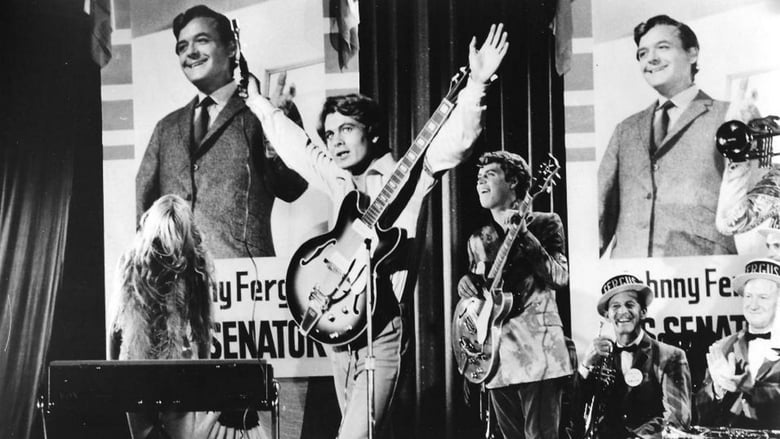
Wild in the Streets (1968)
Musician Max Frost lends his backing to a Senate candidate who wants to give 18-year-olds the right to vote, but he takes things a step further than expected. Inspired by their hero's words, Max's fans pressure their leaders into extending the vote to citizens as young as 15. Max and his followers capitalize on their might by bringing new issues to the fore, but, drunk on power, they soon take generational warfare to terrible extremes.
Watch Trailer
Cast
Similar titles
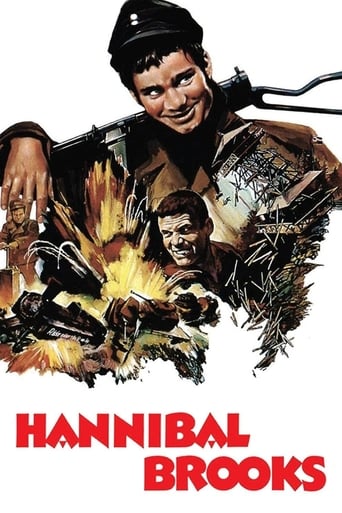
Reviews
Great Film overall
Simple and well acted, it has tension enough to knot the stomach.
The movie's neither hopeful in contrived ways, nor hopeless in different contrived ways. Somehow it manages to be wonderful
This movie tries so hard to be funny, yet it falls flat every time. Just another example of recycled ideas repackaged with women in an attempt to appeal to a certain audience.
Where's Eric Cartman, a giant mechanized drilling machine, and a Slayer CD when you really need them?"Wild in the Streets" is a laughably dated curiosity piece from the late 60's that really has to be seen to be believed.The plot: We're introduced to the life of one "Max Jacob Flatow, Jr." aka "Max Frost" (Christopher Jones) from his unwanted conception to his dysfunctional childhood due to his mother (Shelley Winters) being a frigid harpy to his running away from home as a teen. We later meet Max as a 22 yr old lead singer of a successful pop group. Although he's an acid-dropping, dope-smoking layabout with several illegitimate children and is surrounded by ne'er-do-well hippies (yes, a redundancy), Max has become one of the richest men in the country. (Hippies have money?) With his wealth and massive youth following, Max's support is sought by politicians.Enter ambitious "Johnny Fergus" (Hal Holbrook), a 37 yr old family man, who wants to be a senator. He's a supporter of lowering the voting age to 18, and believes that Max can further help him wrap-up the youth vote. However, Max knowing that the young outnumber the "Old Tigers" (anyone over 30) demands that Fergus help him lower the voting age to 15 in exchange for his support. Fergus agrees and wins his coveted senate seat. Yet, Max isn't through. With voting age lowered, he's able to get his acid-head girlfriend (Diane Varsi) elected to congress from which she pushes for an amendment to lower the age restrictions to 14 for all political offices including the presidency. The amendments pass with the assistance of spiking the water supply with LSD.Max then becomes president and disbands the military, FBI, CIA, and secret service; ends all foreign entanglements; feeds all the hungry nations; and imprisons anyone over 35 in concentration camps where they're force-fed LSD including his nutty mother and Senator Fergus who woke-up too late to the monster he helped create.This is one seriously whacked-out film. It goes to show how desperate Hollywood was in the late 60's to reach the youth audience, and it really thought this LSD-inspired mess would do the trick. It's supposed to be a satire, but it panders to many of the nuttiest excesses of the late 60's counterculture. Yet, at the same time, it also portrays the hippies as power-mad fascists. It's so ham-handed that it comes across as a bad acid trip. Overall, it's just so ridiculously stupid that it can't be viewed as either satire, parody, or broad comedy. There is absolutely nothing clever or witty about this film.As for the cast, no one comes-off well here. Ed Begley and Shelley Winters ham it up to an extreme extent. Christopher Jones was briefly a hot commodity, but quickly disappeared from the film scene. Richard Pryor has a small role as "Token Black" who plays drums rather than bass in Max's cheesy band. The only other "notable" is Barry Williams (aka "Greg Brady") in a brief scene as adolescent Max.Like the now unintentionally funny Billy Jack films, "Zabriskie Point, "The Strawberry Statement," and other awful counter-culture films of the late 60's and early 70's, "Wild in the Streets" is an absurd time capsule that really makes one wonder how did the CIA or the Commies manage to spike America's water supply?
I grew up in the sixties and even though I was 8 years old when this was made, I still remember the song "14 or Fight" and all that was happening during that time.Definitely the drugs and clothes and music are true to the time period and the movie is more of a Docudrama than anything else.The young people of the late sixties knew what a potential threat they were to their elders. I believe it was their raising to respect their elders that kept the ideas presented in this movie from actually coming about.Today or I should say when Bill Clinton was President, the idea of lowering the voting age to 14 was again raised as an issue that needed consideration.I have read here that people would like to have this movie, I can give information how you can get it in very good quality! Email me atjcenso at hotmail dot com
For its time this was a movie that made a huge impression on youth. I was about 11 when I saw it and have always remembered it and wanted to see it again. I'd tell everyone about it and no one seemed to have seen it. The song was equally as impressive and I always remember it as well. Made a huge impact on my outlook. Involved politics, teenage idealism, sex, drugs, rock & roll - everything you could want. It was all about youthful rebellion during a volatile time in our nation's history. Did not see it again until 36 years later. Yes, now it is definitely dated and campy, but the memories it brings back are very powerful and I want to see it one more time! Chris Jones rocked, too bad he never made it as big as he should have.
It was Jimmy Fergus who initially brought out the "very best" in Max, who met the former so abruptly on the former's own terms; but, as the kind of modern-day Caligula lingering not too deeply beneath the flimsiest of surfaces in Max, at least when the wrong buttons were even quite innocently and inadvertently pushed; but, particularly, by the kind of "legacy," from "Stiffs," who "live high, and fat, with all the money!"--Or, "at least," given their most miserably poor driving habits, in a way which would have produced the same "high-intensity" reaction, especially from James Dean, and, in fact, did, on many occasions. . . . This is a dynamically thought provoking script, from beneath its more "cultishly caricaturistic" surface; as one of the most timely and relevant yet marginalized and underrated satires of social commentary ever produced, even despite its "grossly absurd improbabilities." . . . Moreover, as for all those "Old Tigers?" Maximilian, baby, couldn't have been more wrong! Just wait and see how well one of the oldest of them is about to "fly!" Yet, nobody but Jones could have carried this lead so effectively, with the kind of professionally well-polished finesse he exhibited. He was truly fated to assume this particular role, just as he blended in so smoothly with the character of Frost, that it's about anybody's guess, from far enough away, as to where he ended, and Max began. . . . Only Shelley Winters had been as "archetypally" irreplaceable here--Along with her Sally LeRoy!--and, in total, an entire cast which it was extremely fortunate didn't have to be replaced. The songs were no less movingly, inspiringly performed as well as composed. For instance, the thought of seeing such a dynamically new paradigm envelop the land, "like a fresh, new breeze," had been something quite overwhelmingly, urgently, inseparably "top-of-the-line!" At least one unsung line is more than applicable today, which goes, "The only thing that blows your mind when you're thirty is getting guys to kill other guys; only in another city, another country, where you don't see it; they don't know anything about it!" . . . I was hardly the first to notice the close physical resemblance of Jones to James Dean. I believe he missed one of his greatest opportunities, and commands upon the scope of his talent, by not having portrayed the role of James Dean himself, in place, for just one instance among others, of a Stephen McHattie--who had no business in the part, either! . . . As for his differences from James Dean, which do run much more than "skin-deep," even in ways which need never have detracted from the uniqueness of the skills of Jones, had Dean been permitted, in this sense, to reduce him to nothing but a "clone?" James Dean had a genuineness, an existential depth, which is not at all the easiest thing in the world to merely imitate!--Save, that is, and short only of the real thing, to the extent that a level of "method acting," on a par with, say, Kirk Douglas, in his purely superficial though movingly convincing portrayal of Vincent Van Gogh, had been adequately at the command of Jones. . . . The only other real waste, next to that of Jones, here, is that Charles Laughton would have played the role of Socrates, as superlatively as he did Gracchus, in Spartacus! As for Jones, however, he did, nevertheless, get a very good "Shot at the Title," of being Dean, at "Home," or, more accurately, in the words of Dean himself, at the "Zoo," and, of course, again, after a car crash, during the opening scenes of Wild in the Streets! . . . Just thank God, if even most of you believe in the right one, that Wild in the Streets is only a fantasy; along with its logically necessary sequel, Children of the Corn, and a gradually renewing expansion of the "Legal Age!" However, perhaps nothing at all, even in such a dismally-conceived future, could possibly surpass, for instance, the reportedly true as well as normatively realistic history, of a film such as Mark of the Devil, with Herbert Lom!--Or, as Nietzsche said, Progress is merely a modern idea, that is to say, a false idea!
